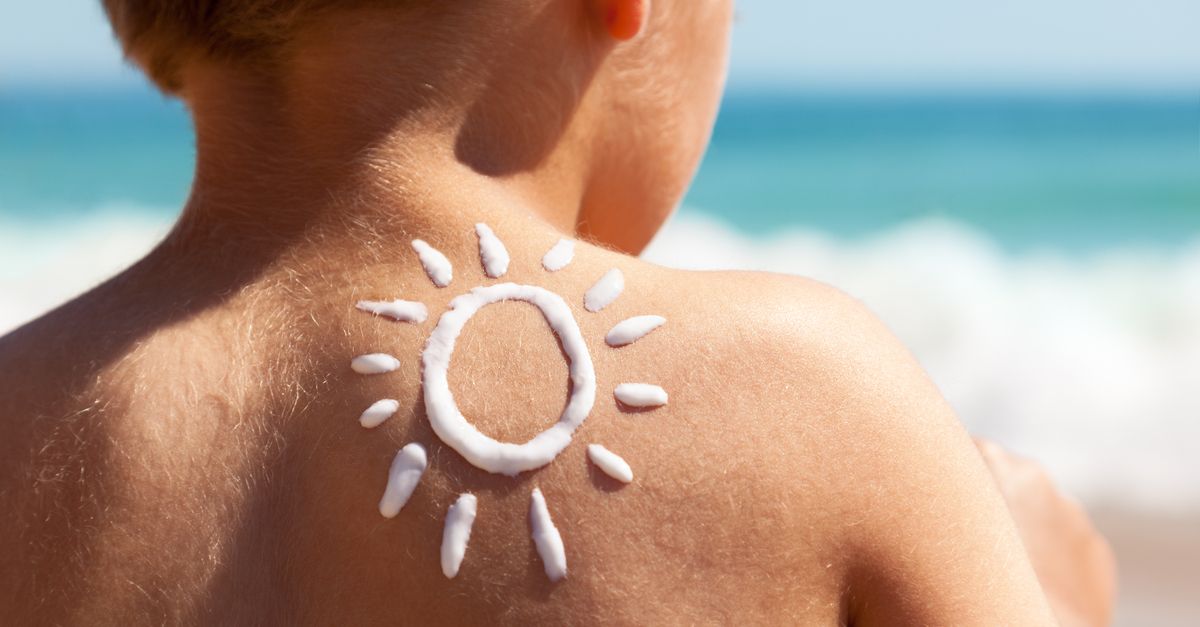In May 2017, Rebecca Cannon, a Canadian woman, published a series of posts on Facebook, describing the second-degree chemical burns her 14-month-old daughter Kyla purportedly suffered after Cannon sprayed her with Banana Boat Kids SPF-50 sunscreen.
Photos accompanying the posts appear to show significant burns, blisters and swelling on her daughter's face. Cannon, who lives in the Newfoundland and Labrador province, recounted the experience in an interview with CBC on 9 May 2017:
As the day went on, she got a little redder and redder and the next morning she woke up and was swollen, she was bright red, there were blisters starting to pop up. We immediately took her up to the doctors and found out she has second degree burns.
In a Facebook post two days later, Cannon said:
...It has been verified and confirmed 3 times now a 2nd degree caustic burn (chemical burn).
The episode resembles another from 2016, which also attracted some media attention. In May 2016, Virginia resident Jennifer Bradford Sayers posted an account of her sons' experience after purportedly using the Banana Boat Kids SPF-50 aerosol spray.
Our family spent a fantastic day at the local beach Saturday. We were there for aproximately 5 hours [sic]. We used Banana Boat Kids SPF 50 spray sunscreen thirty minutes prior to hitting the beach to allow it to soak in (as recommended) and re-applied at intervals while at the beach (towel drying prior and allowing for time for the product to soak in, again as recommended by the manufactors.) [sic]. Both boys wore rash guards for about half of the day. We left the beach sporting slight sunburns but nothing could prepare us for how Liam looked only 24 hours later. Liam has 1st, 2nd and possible 3rd degree burns on his nose and cheeks [sic]. Caleb has blistering on his shoulders but no where near as bad as Liam has on his face.
The post was accompanied by several photos appearing to show significant burns, blisters and swelling to Liam's face.
We have no reason to doubt the veracity of either Rebecca Cannon and Jennifer Bradford Sayers's accounts. There are no obvious implausibilities, logical gaps or incidental inaccuracies that would indicate their stories might be exaggerated or untruthful.
That said, however, we obviously cannot verify the sequence of events described in both accounts, nor confirm that what is shown in the photos is, in fact, the result of what both women claim — that is, the application of Banana Boat Kids SPF-50.
Banana Boat Kids SPF-50 is approved by the Skin Cancer Foundation. However, the FDA advises that "Spray sunscreens should never be applied directly to your face."
The FDA also says that certain chemicals in sunscreens can provoke an allergic reaction, when exposed to sunlight on a person's skin, and that this can result in "sunburn-like symptoms, a rash or other unwanted side effects."
However, an FDA spokesperson told us this is rare:
The FDA is aware of rare cases of serious allergic reactions that have been reported with the use of sunscreen products. Over-the-counter sunscreen products include a warning to watch for skin rashes as a possible adverse event related to the use of the product. Although consumers occasionally experience a skin reaction, the overall benefits of sunscreen use far outweigh the risks of these reactions.
We got an expert assessment from Dr. Joyce Teng, Clinical Professor of Dermatology and Pediatrics at Stanford University School of Medicine, who reviewed the photos posted to Facebook by both Rebecca Cannon and Jennifer Bradford Sayers:
The photos shown for both cases suggest that the children had allergic contact dermatitis that is exacerbated by photo exposure [exposure to sunlight].
Dr Teng said both sets of photos appeared to show "severe" examples of "allergic contact reaction" to the sunscreen, and added:
As a pediatric dermatologist, I do not recommend the use of aerosol sunscreen on children, as it is very difficult to control the quantity and quality of the sunscreen application.
Banana Boat Kids SPF-50 was one of a range of Banana Boat Ultra Mist products withdrawn from the market in 2012, "due to a potential risk of product igniting on the skin if contact is made with a source of ignition before the product is completely dry."
In a statement, Edgewell Personal Care, the company that manufactures Banana Boat products, told us this was done "out of an abundance of caution after an issue with the delivery system of the affected products, specifically the size of the spray valve opening, was reported."
They added: "Currently marketed Banana Boat products have a different valve and remain safe to use as directed."
In relation to concerns that the children's sunscreen spray may be causing burns, the company said:
We take all of our consumer’s concerns seriously and investigate all cases when we are contacted directly about someone who has encountered a reaction when using our products. However it is difficult to determine what may have caused reported problems as described without examining the product or determining the specific type of reaction.
With that said, our quality assurance team will look into reported cases and assist consumers reporting concerns in any way we can. As part of this commitment, we have engaged with the families associated with the cases you mention.
Importantly, all Banana Boat products, including Banana Boat SPF-50 Kid's spray, undergo rigorous testing to ensure they are appropriately labeled and meet all relevant health regulations, including SPF tests. All Banana Boat sunscreens fall within a neutral PH range, which means they are safe for human skin, topical use, and cannot cause chemical burns, which are sometimes mistakenly linked to personal care products or confused with sunburns, or tissue damage.
We encourage people who have concerns about a type of burn to visit a dermatologist who can determine the differences between a chemical burn, a sun burn, or a reaction to sunscreen itself.

